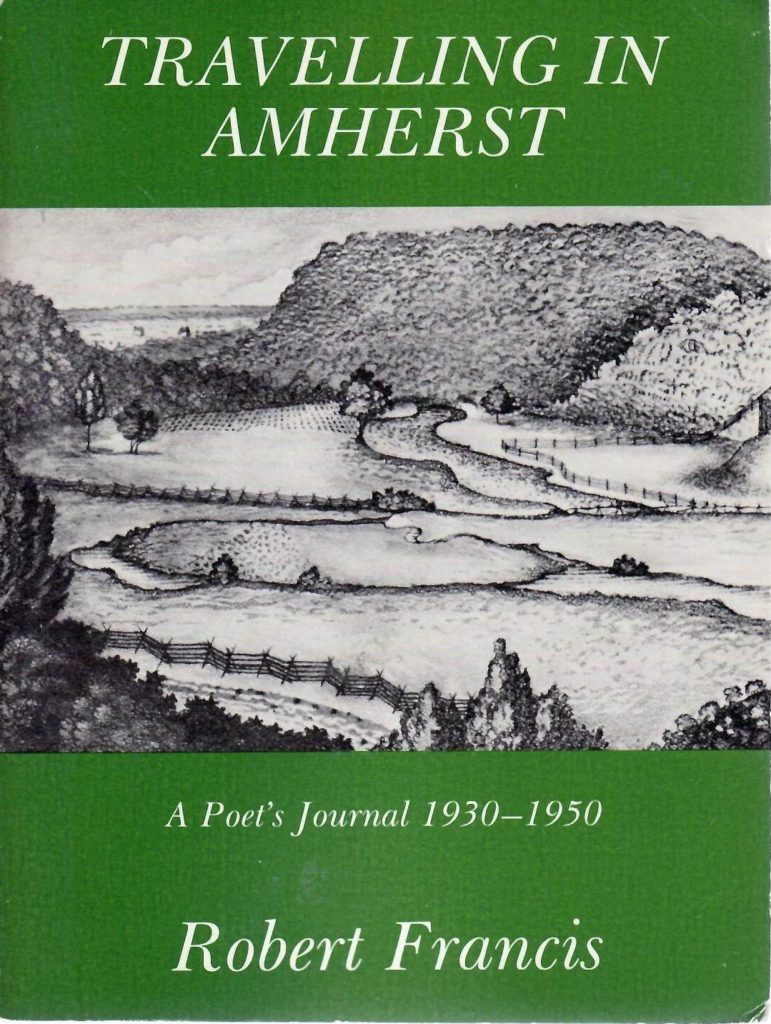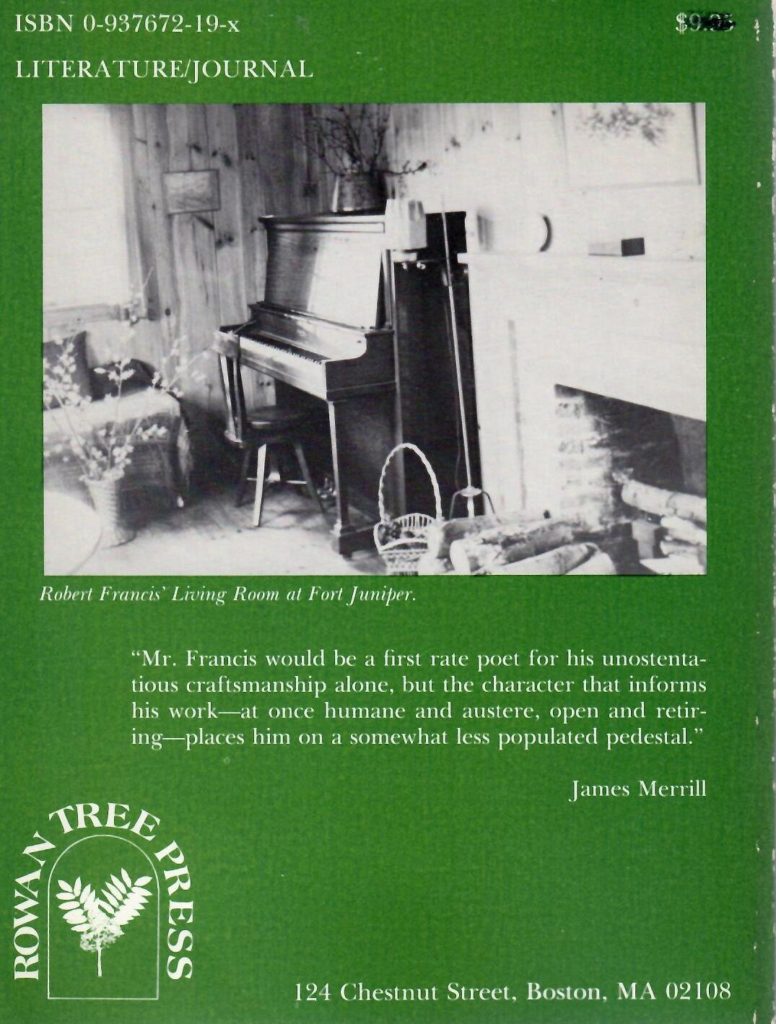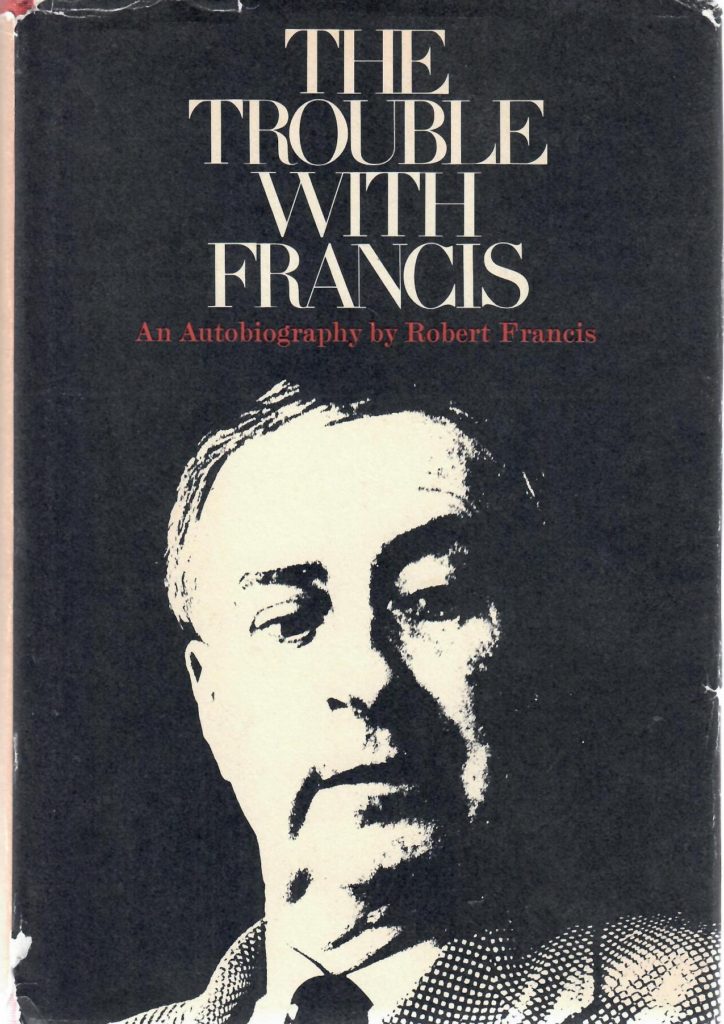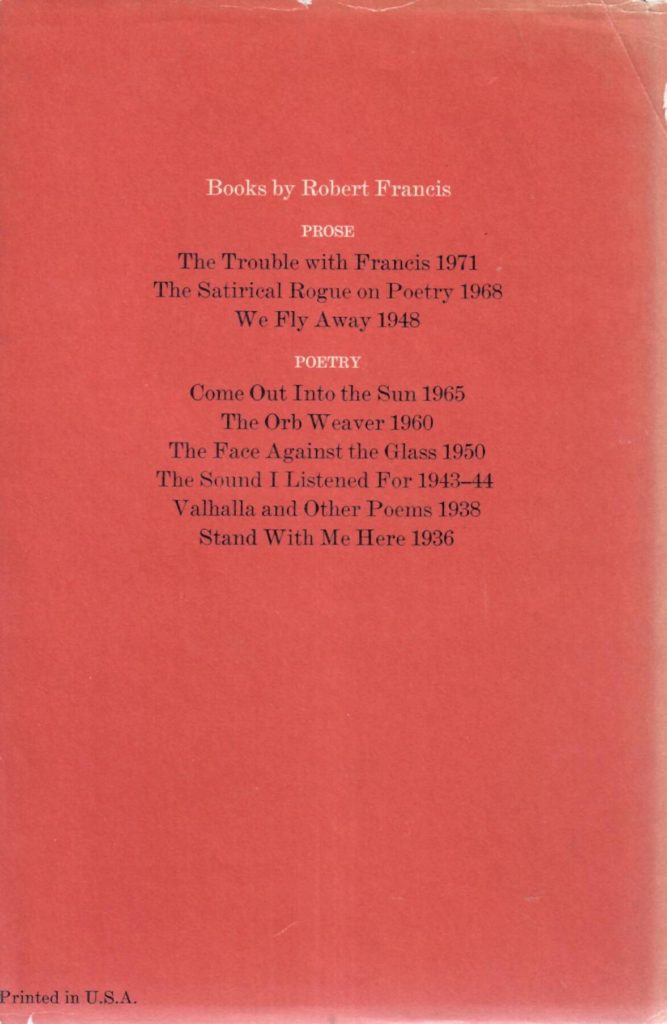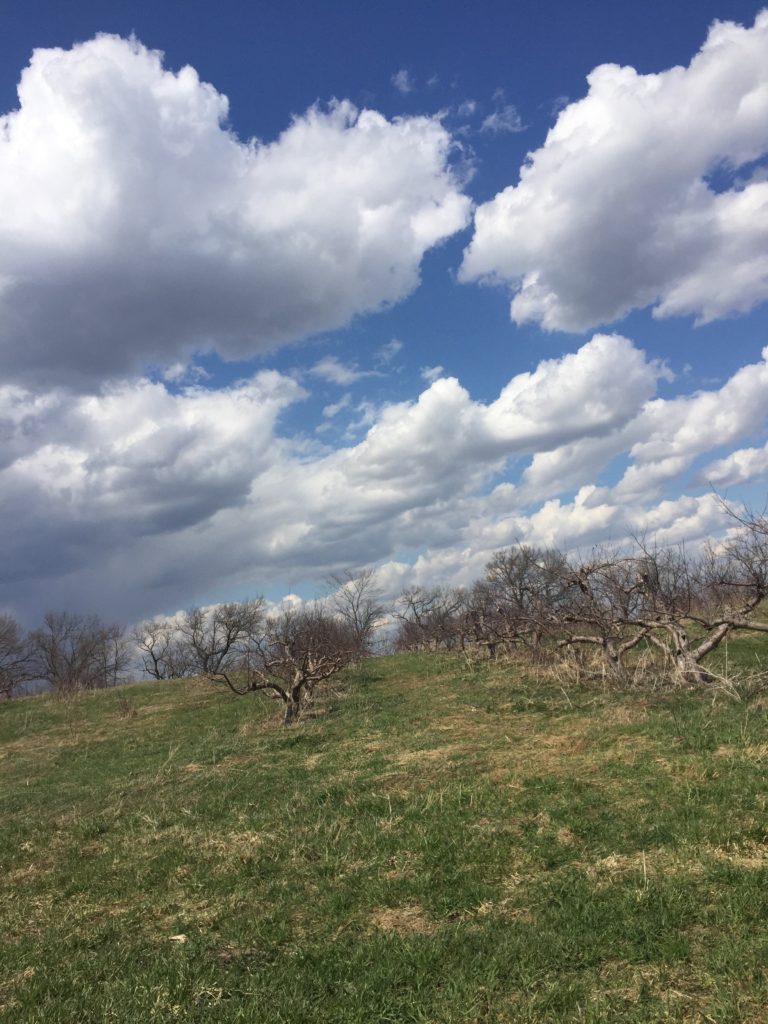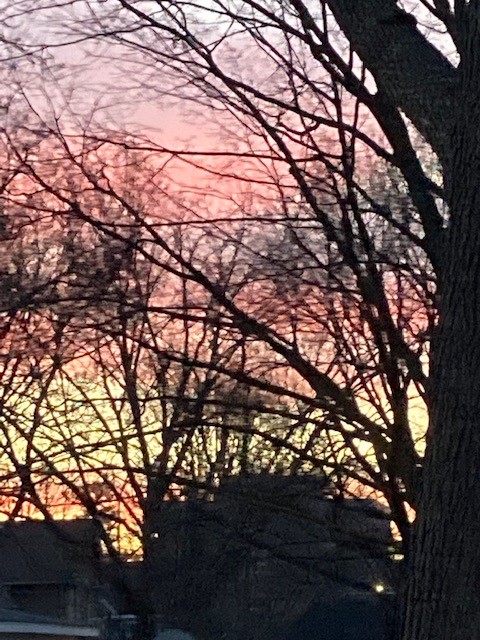
As homebody Emily Dickinson (1830-1886) observed in her poem (1286), written at her desk in Amherst, Massachusetts, late in the 19th century:
There is no Frigate like a Book
To take us Lands away
Nor any Coursers like a Page
Of prancing Poetry –
This Traverse may the poorest take
Without oppress of Toll –
How frugal is the Chariot
That bears the Human Soul –
In so many ways, this poem conjures up the essence for me of her countryman and kindred spirit Robert Francis (1901-1987). The excerpts from his journal, penned over twenty years, that are gathered in Travelling in Amherst: A Poet’s Journal 1930-50 (Rowan Tree, Boston, 1986), tell the adventure story of living quietly and frugally, in a house he designed and built himself. Francis, a poet whose work has spoken to me so often that I have some of his short, crystalline lyrics by heart. (My special favorites are “Sheep” and “Blue Winter”.)
Within his journal, Francis compares himself to Thoreau, and the comparison has merit. Francis lived in the woods frugally on soy beans, income from teaching (often violin), some meager royalties and magazine payments for poems, and little else besides the wide-flung and determined joy of living a quiet life according to his own inner light.
His other two major works in my library are Robert Francis: Collected Poems 1936-1976 (The University of Massachusetts Press, Amherst, 1976) and The Trouble with Francis: An Autobiography of Robert Francis (The University of Massachusetts Press, Amherst, 1971). He has other volumes of prose, and individual collections of poems.
Francis deserves now, as he deserved during his lifetime, to be more widely read, funded, and appreciated. Yet, as poet George Herbert observed, “The best revenge is living well.” Francis did have many friends, won numerous awards during his lifetime, and, despite bleak times, ultimately published a great deal. I look up to Robert Francis as a gentle, ferociously talented and productive poet and a good man who lived well. We can all be glad he left, in his poems and his works of memoir, a full record of his sojourn here on earth.
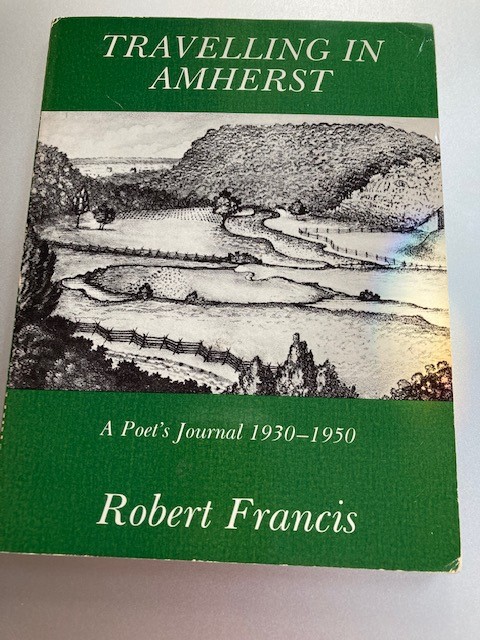
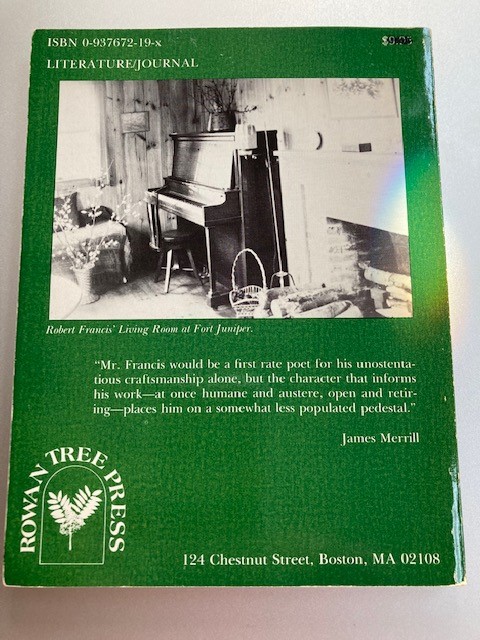
Background on My Poem “Wanderlust”:
I have been writing fiction this year, and because of this I have been interested in how plots work. In my reading, I keep encountering different distillations, such as “Boy meets girl; boy loses girl; boy wins girl” or “trauma as animating back story.” This poem arose from mulling over the redactive dictum that “There are only two plots: a stranger comes to town, or a person sets off on a journey.” I suppose there is some truth to these structural suppositions, as there is to defining a dwelling as “a roof, a floor, and walls.” Yet even with cookie-cutter building and common elements, every home is distinct. As a reader, I love to compare and to contrast. As a writer, I suppose that I try to say something that hasn’t been exactly said before but that chimes with what already exists…with varying degrees of success, of course!

Happy Reading! Happy Writing! Happy Mulling! LESLIE

